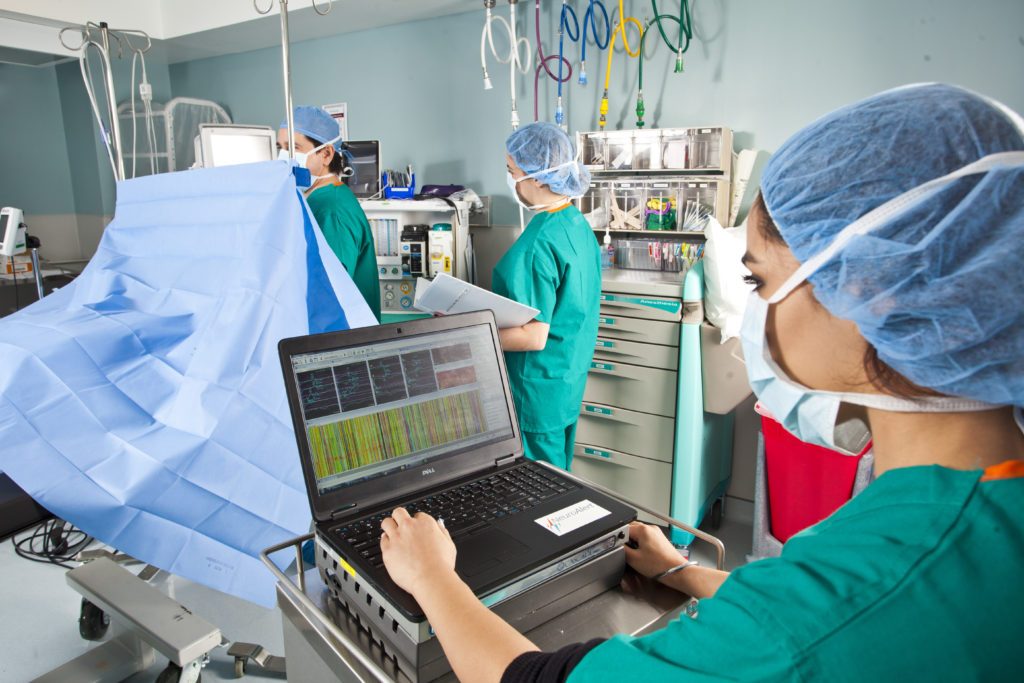
If you are one of the 300,000 U.S. graduates with a science or health-related degree pondering your next steps, you’re not alone. With 125,000 applicants to PA school and with Medical School acceptance rates hovering at 40%, the growing competition and surmounting costs of advanced education are causing graduates to explore new options that dovetail their passions with a healthcare career that is accessible does not require a lengthy time commitment, and won’t break the bank.
The little-known healthcare field of Intraoperative Neurophysiologic Monitoring (IONM)— monitoring of the nervous system during spine, brain, vascular, ENT and other surgeries that put the nervous system at risk– has been in existence for over 30 years but has become the standard of care in the last 15-20.
Through the employment of various electrophysiologic tests or modalities conducted through IONM-specific hardware, software and supplies, the Surgical Neurophysiologist (the clinician who performs IONM) and a Remote Supervising Physician (a board-certified neurologist or other medical doctor certified in Clinical Neurophysiology) observe and record data from the nervous system in real-time, alerting the surgical team to any changes that might present as post-operative deficits or injuries.
With close to a million spine surgeries performed in the U.S. alone and with only a very small fraction of certified Surgical Neurophysiologists available to monitor them, the field of IONM is burgeoning with job opportunities, and the training and education require significantly less time and funding than most other medical-related fields.
If you are driven to help patients live their best possible lives and are excited by the idea of becoming a critical part of the surgical team, you owe it to yourself to explore a career in IONM.
To find out more about how you can you fast-track a career in Intraoperative neuromonitoring, email info@electroneuro.org or call 844-GOTOCEN
